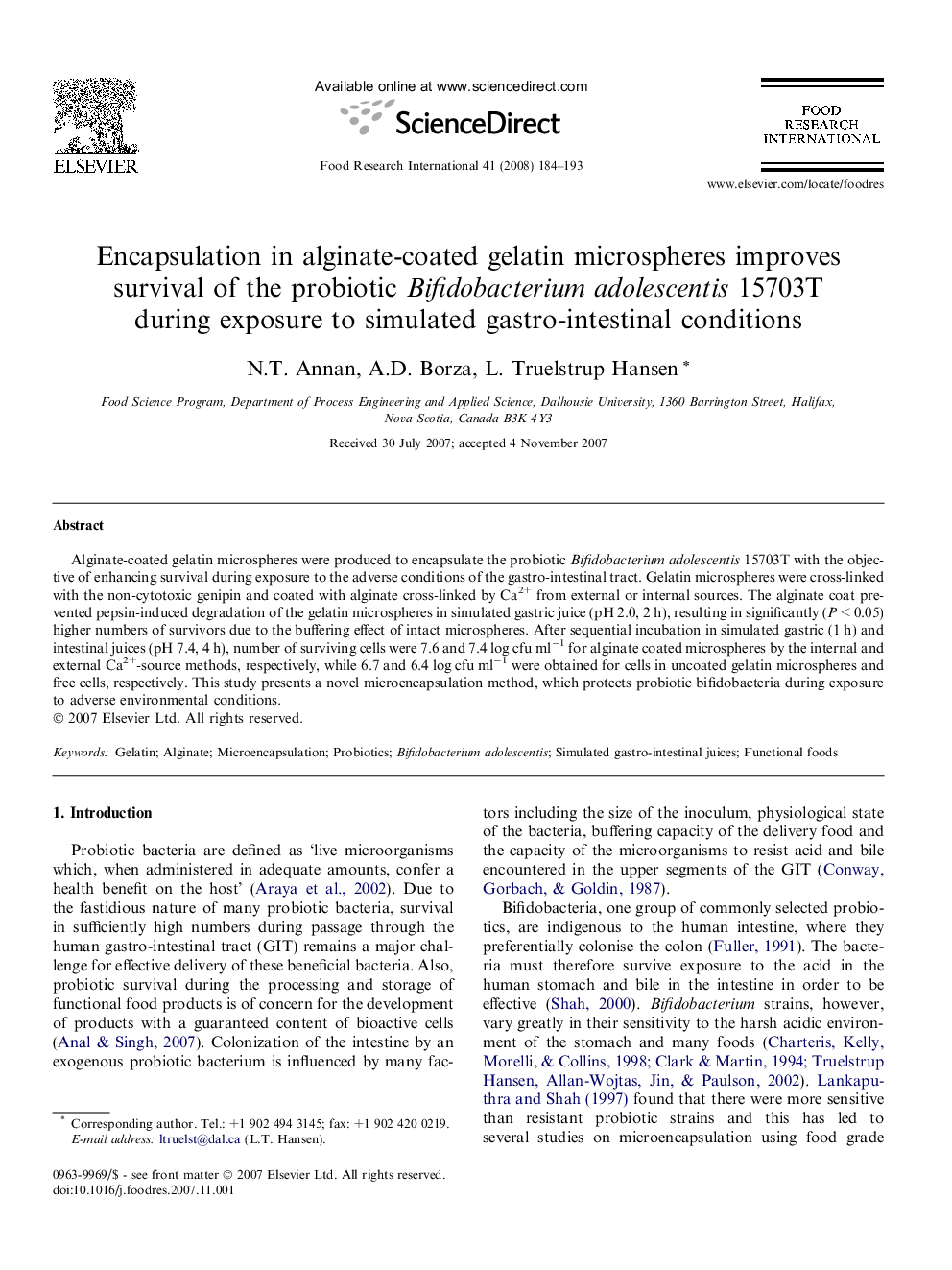| Article ID | Journal | Published Year | Pages | File Type |
|---|---|---|---|---|
| 4562769 | Food Research International | 2008 | 10 Pages |
Alginate-coated gelatin microspheres were produced to encapsulate the probiotic Bifidobacterium adolescentis 15703T with the objective of enhancing survival during exposure to the adverse conditions of the gastro-intestinal tract. Gelatin microspheres were cross-linked with the non-cytotoxic genipin and coated with alginate cross-linked by Ca2+ from external or internal sources. The alginate coat prevented pepsin-induced degradation of the gelatin microspheres in simulated gastric juice (pH 2.0, 2 h), resulting in significantly (P < 0.05) higher numbers of survivors due to the buffering effect of intact microspheres. After sequential incubation in simulated gastric (1 h) and intestinal juices (pH 7.4, 4 h), number of surviving cells were 7.6 and 7.4 log cfu ml−1 for alginate coated microspheres by the internal and external Ca2+-source methods, respectively, while 6.7 and 6.4 log cfu ml−1 were obtained for cells in uncoated gelatin microspheres and free cells, respectively. This study presents a novel microencapsulation method, which protects probiotic bifidobacteria during exposure to adverse environmental conditions.
